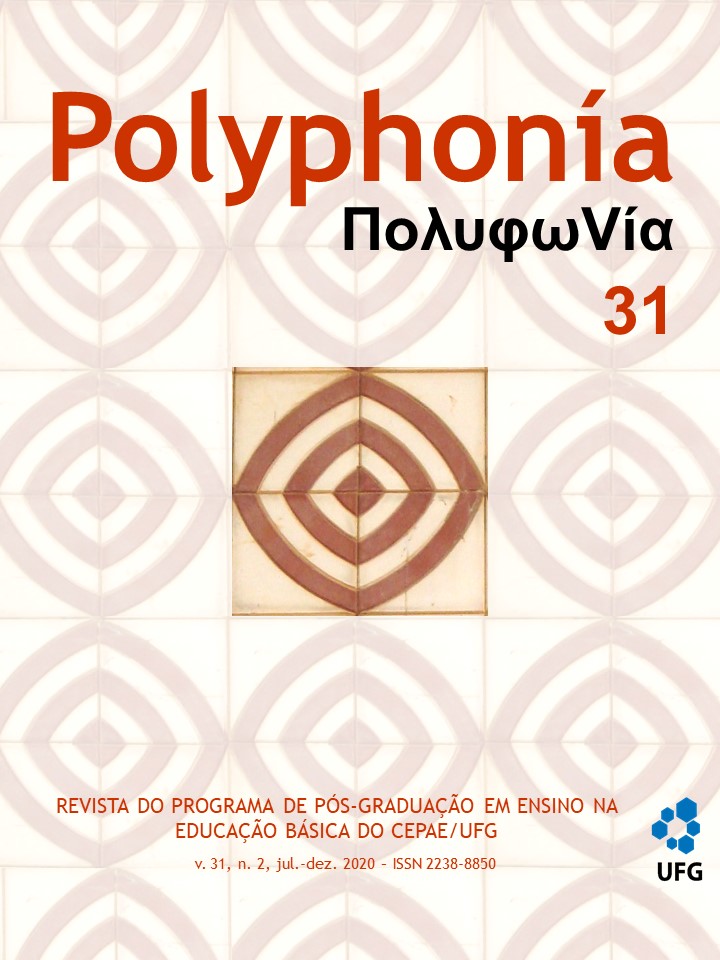Ensino Híbrido: um processo contínuo de gestão de sala de aula
DOI:
https://doi.org/10.5216/rp.v31i2.67103Resumo
O presente artigo apresenta uma reflexão sobre o ensino híbrido a partir de uma abordagem da gestão de sala de aula e o uso das metodologias ativas de aprendizagem. Nesse sentido, registra-se como principal objetivo discutir as mudanças metodológicas que propõe o ensino híbrido vinculado às Tecnologias Digitais de Informação e Comunicação, caracterizando especificamente a organização e a direção de situações que favoreçam a aprendizagem. Utiliza-se como metodologia a pesquisa bibliográfica, a partir dos estudos de Moran (2015), Bacich, Tanzi e Trevisani (2015), Kenski (2012) e Libâneo (2010). Busca-se refletir sobre a relação das pessoas com os usos das novas tecnologias no contexto educacional. Conclui-se que as novas tecnologias e o modo híbrido de ensino podem contribuir efetivamente para a educação principalmente se, e quando, passa a ser efetivamente praticado nas salas de aula e não somente discutido nos ambientes acadêmicos.Downloads
Não há dados estatísticos.
Downloads
Publicado
2020-12-17
Como Citar
DE ALMEIDA MEIRA NOVAIS, Ivanilda; FURLAN COSTA, Maria Luisa; FERREIRA CABAU, Nubia Carla. Ensino Híbrido: um processo contínuo de gestão de sala de aula. Revista Polyphonía, Goiânia, v. 31, n. 2, p. 179–193, 2020. DOI: 10.5216/rp.v31i2.67103. Disponível em: https://revistas.ufg.br/sv/article/view/67103. Acesso em: 11 fev. 2026.
Edição
Seção
Dossiê Tecnologias Digitais na Educação Básica
Licença
Política de direitos autorais (acesso livre). Autores que publicam nesta revista concordam com os seguintes termos: Autores mantém os direitos autorais e concedem à Revista Polyphonía o direito de primeira publicação, com o trabalho simultaneamente licenciado sob a Creative Commons Attribution License que permitindo o compartilhamento do trabalho com reconhecimento da autoria do trabalho e publicação inicial nesta revista.
Autores têm autorização para assumir contratos adicionais separadamente, para distribuição não-exclusiva da versão do trabalho publicada nesta revista (ex.: publicar em repositório institucional ou como capítulo de livro), com reconhecimento de autoria e publicação inicial nesta revista.
Autores têm permissão e são estimulados a publicar e distribuir seu trabalho online (ex.: em repositórios institucionais ou na sua página pessoal) a qualquer ponto antes ou durante o processo editorial, já que isso pode gerar alterações produtivas, bem como aumentar o impacto e a citação do trabalho publicado (Veja O Efeito do Acesso Livre).


